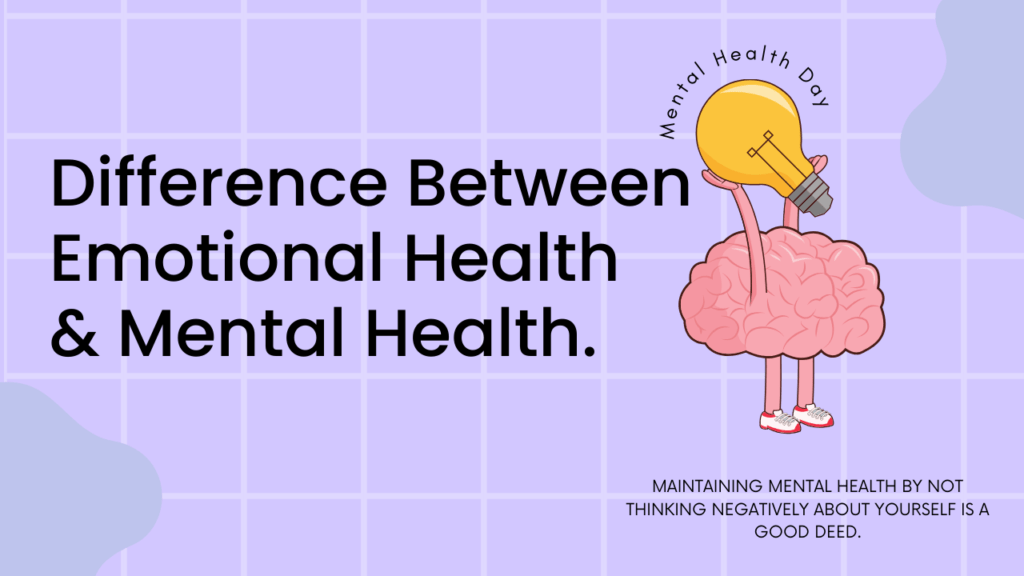Becoming a certified mental health coach is a rewarding path that allows you to support individuals in achieving better mental health and well-being.
Keep in mind that the road to certification involves more than just academic qualifications; it’s a blend of knowledge, practical skills, and a commitment to ongoing learning.
This profession involves gaining specific knowledge, skills, and certifications to effectively guide and assist others.
Understanding the steps and requirements to become a certified mental health coach can help you embark on this fulfilling career.
Let’s explore the process of becoming a certified mental health coach.
Education Requirements
To become a certified mental health coach, you must meet specific education requirements set by accrediting bodies.
Pursuing a bachelor’s degree in psychology, counseling, social work, or a related field is typically the first step.
These programs provide foundational knowledge in human behavior, mental health disorders, and therapeutic techniques.
Additionally, obtaining a master’s degree in counseling or a mental health-related field can enhance your expertise and credibility as a coach.
It’s important to choose accredited programs to make sure you receive quality education that meets industry standards.
Training Programs
As you begin your journey to become a Certified Mental Health Coach, understanding the ins and outs of training programs is vital.
These programs will equip you with the necessary knowledge and skills to support individuals facing mental health challenges.
Certification processes guarantee that you meet the standards required to make a positive impact in this field.
Program Requirements
Understanding the program criteria for training programs is crucial for individuals aspiring to become certified mental health coaches.
The journey to certification involves meeting specific criteria set by accredited institutions. Below is a breakdown of common requirements you may encounter:
| Program Criteria | Details |
|---|---|
| Education | Bachelor’s degree in a related field such as psychology or social work. |
| Training Hours | Completion of a specified number of training hours, often ranging from 60 to 100 hours. |
| Supervised Experience | Acquiring a certain amount of supervised experience, typically around 500 to 1,000 hours. |
These criteria ensure that aspiring mental health coaches receive thorough training and experience to effectively support individuals on their mental health journeys.
Certification Process
Meeting the program criteria sets the foundation for your journey towards becoming a certified mental health coach.
The next step is the Certification Process within Training Programs.
Training programs provide a structured curriculum designed to equip you with the necessary skills and knowledge to support individuals in their mental health journeys.
During the certification process, you’ll engage in coursework, practical training, and assessments to demonstrate your understanding and proficiency in mental health coaching.
These programs offer valuable insights into various therapeutic techniques, communication strategies, and ethical considerations to prepare you for real-world scenarios.
Embrace this process as an opportunity for growth and development, honing your abilities to make a meaningful difference in the lives of those seeking mental health support.
Trust in the process and believe in your capacity to positively impact others.
Certification Process
As you start on the journey of becoming a Certified Mental Health Coach, it’s important to understand the key points of the certification process.
This includes meeting specific training requirements, preparing for the exam and assessment, and exploring continuing education opportunities to enhance your skills.
Training Requirements
You can fulfill the training requirements for becoming a Certified Mental Health Coach by completing a thorough certification process that includes coursework, practical experience, and assessments.
In this process, you’ll engage in specialized coursework that covers various aspects of mental health coaching, such as communication skills, ethics, mental health disorders, and coaching techniques.
Practical experience is an essential component where you’ll work directly with clients under supervision to apply your knowledge in real-life scenarios.
Additionally, assessments will be conducted to evaluate your understanding and application of the material.
Exam and Assessment
To attain certification as a Mental Health Coach, you will need to complete an exam and assessment as part of the certification process.
This evaluation confirms that you have the necessary knowledge and skills to support individuals in their mental health journey effectively.
The exam covers various areas such as mental health disorders, communication techniques, ethical considerations, and practical coaching strategies.
The assessment may include role-playing scenarios, case studies, and written responses to gauge your understanding and application of mental health coaching principles.
Below is a breakdown of the components typically included in the exam and assessment:
| Exam & Assessment Components | Description | Purpose |
|---|---|---|
| Multiple Choice Questions | Test knowledge retention | Evaluate theoretical understanding |
| Role-Playing Scenarios | Simulate real-life situations | Assess practical application skills |
| Written Responses | Demonstrate communication | Evaluate critical thinking abilities |
Continuing Education Opportunities
Exploring various continuing education opportunities can enhance your skills and knowledge as you progress through the certification process of becoming a Mental Health Coach.
Consider attending workshops, seminars, or webinars focusing on topics such as cognitive-behavioral therapy, trauma-informed care, or mindfulness techniques.
Engaging in these educational experiences won’t only deepen your understanding of mental health issues but also provide you with practical tools to support your clients effectively.
Additionally, pursuing advanced certifications in areas like addiction counseling or family therapy can broaden your expertise and make you more versatile in addressing diverse client needs.
Practical Experience
How can you gain valuable practical experience as you work towards becoming a certified mental health coach?
One effective way is to seek supervised internships or volunteer opportunities at mental health facilities, community centers, or counseling clinics.
These hands-on experiences will allow you to work directly with clients under the guidance of experienced professionals, helping you develop essential skills in assessment, treatment planning, and therapeutic interventions.
Additionally, consider joining support groups or helplines to gain exposure to various mental health issues and practice active listening and empathy.
Engaging in role-playing exercises with peers or participating in case discussions can further enhance your practical skills.
Specialization Options
Consider exploring various specialization options within the field of mental health coaching to enhance your expertise and better cater to the needs of your future clients.
Specializing in areas such as anxiety management, trauma recovery, relationship counseling, or mindfulness practices can help you develop targeted skills to support individuals facing specific challenges.
By honing in on a particular niche, you can deepen your understanding of relevant techniques, theories, and interventions, allowing you to provide more effective and tailored support to those seeking your guidance.
Remember, choosing a specialization should align with your interests and career goals, ensuring that you remain motivated and passionate about the work you do.
Embrace the opportunity to grow and expand your knowledge within a specific area of mental health coaching to make a meaningful impact on the lives of your clients.
Continuing Education
To enhance your skills and stay current in the field, pursuing continuing education opportunities is crucial for your growth as a certified mental health coach.
Continuing education allows you to deepen your knowledge, learn about new techniques, and expand your understanding of mental health issues.
By enrolling in workshops, attending seminars, or taking advanced courses, you can refine your coaching abilities and offer the best support to your clients.
Stay updated on the latest research and trends in mental health to provide evidence-based practices and guarantee the highest level of care.
Embrace these educational opportunities as a way to not only enhance your professional development but also to make a positive impact on the individuals you work with.
Career Opportunities
Exploring career opportunities in the mental health coaching field can open doors to fulfilling and impactful work where you can utilize your skills to support individuals in their journey towards better mental well-being.
As a certified mental health coach, you can work in various settings such as private practices, mental health clinics, schools, or even corporate wellness programs.
Your role may involve providing one-on-one coaching sessions, leading group therapy sessions, developing mental health awareness programs, or collaborating with other healthcare professionals to ensure comprehensive care for your clients.
With the increasing focus on mental health and well-being, the demand for mental health coaches is on the rise, offering you a rewarding career path where you can make a meaningful difference in people’s lives.
Conclusion
To wrap up, becoming a certified mental health coach demands a commitment to education, training, and continuous professional development.
By pursuing a relevant bachelor’s degree, finishing training programs, obtaining certification, gaining practical experience, and exploring specialization options, you can start on a rewarding career aiding others in enhancing their mental well-being.
Remember to prioritize self-care and compassion for yourself and those you assist on their mental health journey.
Your dedication to growth and learning will have a positive impact on the lives of others.

